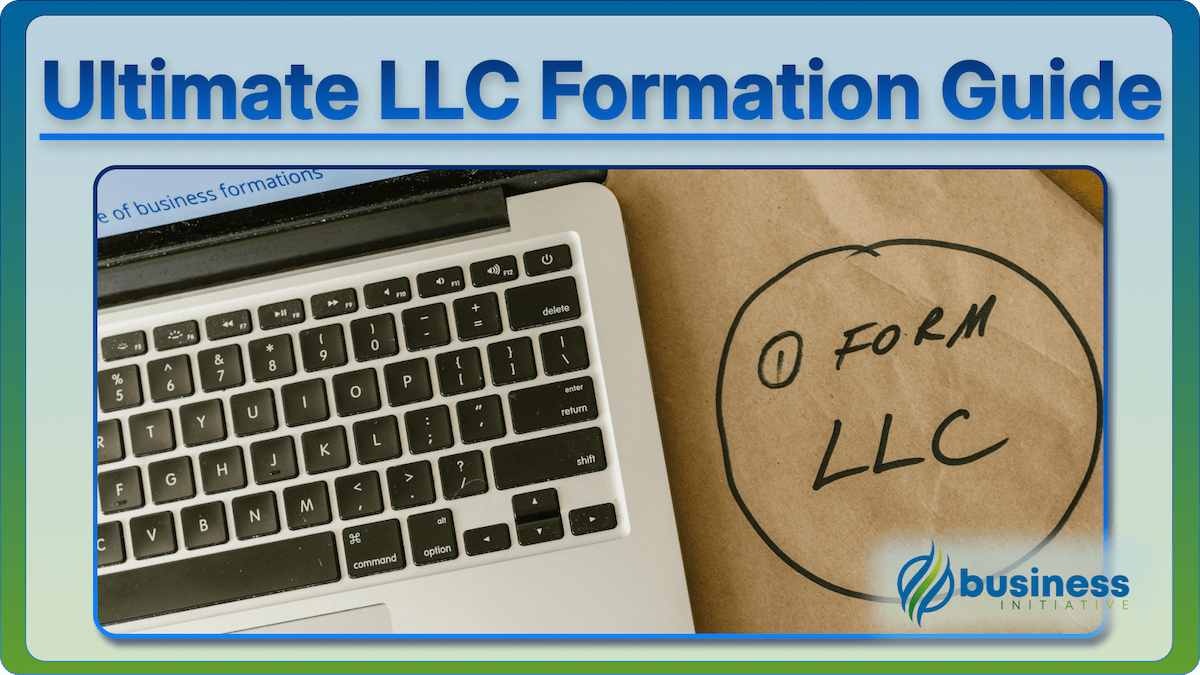You have depreciation.
It affects your finances.
You need to understand the impact.
You need financial clarity.
Depreciation impact. Profit. Taxes. Cash flow. Your reality.
This guide shows you how.
Financial statements. Tax deductions. Cash flow. Your understanding.
Read this. Understand impact. Optimize finances.
 Key Takeaways
Key Takeaways
- Calculate depreciation—use Depreciation Calculator to see annual depreciation amounts
- Impact on profit—depreciation reduces reported profit but doesn't affect cash
- Impact on taxes—depreciation reduces taxable income and tax liability
- Impact on cash flow—depreciation is non-cash, improves cash flow indirectly
- Use strategically—depreciation affects all three differently, use for planning
 Table of Contents
Table of Contents

Why Impact Matters
Understanding impact enables optimization.
What happens without understanding:
- Financial statements are misunderstood
- Tax opportunities are missed
- Cash flow is miscalculated
- Decisions are poor
What happens with understanding:
- Financial statements are clear
- Tax opportunities are captured
- Cash flow is accurate
- Decisions are smart
The reality: Understanding enables optimization.
Impact on Profit
Depreciation reduces reported profit:
Reduces Net Income
What happens:
- Depreciation is expense
- Reduces revenue on income statement
- Lowers net income
- Shows lower profit
Why it matters: Profit appears lower than cash flow.
Non-Cash Expense
What it means:
- No cash outlay
- Accounting entry only
- Doesn’t reduce cash
- Only affects profit
Why it matters: Profit and cash differ.
Financial Statement Impact
What impact:
- Income statement shows lower profit
- Balance sheet shows lower asset value
- Financial ratios affected
- Investor perception affected
Why it matters: Impact affects perception.
Pro tip: Understand profit impact. Depreciation reduces reported profit but doesn’t affect cash. Use our Depreciation Calculator to see amounts.

Impact on Taxes
Depreciation reduces taxable income:
Tax Deduction
What it provides:
- Annual tax deduction
- Reduces taxable income
- Lowers tax liability
- Improves after-tax cash flow
Why it matters: Tax deduction improves finances.
Tax Savings
What savings:
- Tax rate times depreciation
- Real cash savings
- Improves cash flow
- Reduces tax burden
Why it matters: Tax savings improve cash flow.
Timing Benefit
What benefit:
- Deduction spread over time
- Front-loaded with accelerated methods
- Tax benefit earlier
- Cash flow improvement
Why it matters: Timing affects cash flow.
Pro tip: Understand tax impact. Depreciation reduces taxable income and tax liability. Tax savings improve cash flow. Use strategically.
Impact on Cash Flow
Depreciation improves cash flow indirectly:
Non-Cash Expense
What it means:
- No cash outlay for depreciation
- Cash already spent on asset
- Depreciation doesn’t reduce cash
- Cash flow not directly affected
Why it matters: Cash flow differs from profit.
Indirect Improvement
What improvement:
- Tax savings improve cash flow
- Lower taxes mean more cash
- Cash flow better than profit suggests
- Enables better planning
Why it matters: Indirect improvement is real.
Cash Flow Statement
What statement shows:
- Depreciation added back to profit
- Shows true cash from operations
- Separates profit from cash
- Enables cash planning
Why it matters: Statement shows true cash flow.
Pro tip: Understand cash flow impact. Depreciation is non-cash, tax savings improve cash flow. Cash flow better than profit suggests.
Using Strategically
Use depreciation strategically:
Tax Strategy
What strategy:
- Maximize deductions
- Choose methods wisely
- Time deductions
- Optimize tax savings
Why it matters: Strategy improves finances.
Financial Planning
What planning:
- Understand true profit
- Plan cash flow accurately
- Budget for taxes
- Plan asset replacement
Why it matters: Planning enables success.
Investor Communication
What communication:
- Explain profit vs. cash
- Show cash flow strength
- Clarify financial position
- Build confidence
Why it matters: Communication builds trust.
Pro tip: Use strategically. Tax strategy, financial planning, investor communication. Strategic use improves outcomes.

Financial Statements
Depreciation affects all statements:
Income Statement
What it shows:
- Depreciation as expense
- Reduced net income
- Lower reported profit
- Non-cash impact
Why it matters: Income statement shows profit impact.
Balance Sheet
What it shows:
- Reduced asset value
- Lower book value
- Accumulated depreciation
- Net asset value
Why it matters: Balance sheet shows asset value.
Cash Flow Statement
What it shows:
- Depreciation added back
- True cash from operations
- Cash flow strength
- Operating cash flow
Why it matters: Cash flow statement shows true cash.
Pro tip: Understand statements. Income statement shows profit, balance sheet shows value, cash flow statement shows cash. All three affected differently.
Your Next Steps
Calculate depreciation. Understand impact. Use strategically.
This Week:
- Review this guide
- Calculate depreciation for assets
- Understand profit impact
- Calculate tax savings
This Month:
- Track depreciation regularly
- Use for tax planning
- Plan cash flow accurately
- Optimize financial statements
Going Forward:
- Monitor depreciation impact
- Use strategically
- Optimize taxes
- Improve cash flow
Need help? Check out our Depreciation Calculator for depreciation calculation, our depreciation demystified guide for understanding, our depreciation method comparison guide for method selection, and our asset replacement planning guide for strategic planning.
Stay informed about business strategies and tools by following us on X (Twitter) and signing up for The Initiative Newsletter.
FAQs - Frequently Asked Questions About Depreciation in Practice: How It Affects Your Profit, Taxes, and Cash Flow

How does depreciation reduce reported profit even though no cash leaves the business?
Depreciation appears as an expense on the income statement, lowering net income, but it is a non-cash accounting entry—the cash was already spent when the asset was purchased.
Learn More...
When you record depreciation, it shows up as an operating expense on your income statement, directly reducing your reported net income. However, unlike expenses like rent or payroll, no money actually leaves your bank account for depreciation. The cash outflow happened at the time of purchase. Depreciation simply spreads that purchase cost across the years you use the asset. This means your business's actual cash position is stronger than your reported profit suggests. Understanding this gap between profit and cash flow is essential for accurate financial analysis and for communicating your true financial position to investors and lenders.
How exactly does depreciation reduce your tax bill and improve after-tax cash flow?
Depreciation is a deductible expense that lowers your taxable income, so you pay less in taxes—the savings equal your depreciation amount multiplied by your tax rate.
Learn More...
Depreciation provides an annual tax deduction that directly reduces your taxable income. If your business has $50,000 in depreciation expense and a 25% tax rate, you save $12,500 in taxes. Since depreciation itself does not require a cash payment (the asset was already purchased), this tax savings represents real money staying in your business. Accelerated depreciation methods front-load larger deductions into early years, creating bigger tax savings sooner—effectively giving you an interest-free loan from the government by deferring taxes into later years when deductions are smaller. This timing benefit can significantly improve your near-term cash flow.
Why does the cash flow statement add depreciation back to net income?
Because depreciation reduced net income as a non-cash expense, adding it back on the cash flow statement reveals the true cash generated by operations—which is always higher than reported profit.
Learn More...
The cash flow statement starts with net income and adjusts it to show actual cash movement. Since depreciation reduced net income without any cash leaving the business, adding it back corrects for this non-cash charge. The result is operating cash flow, which shows how much real cash the business generated. This figure is often more meaningful than net income because it reflects actual money available for operations, investments, and debt payments. For businesses with significant depreciable assets, the gap between reported profit and operating cash flow can be substantial, making the cash flow statement essential for understanding true financial health.
How does depreciation affect all three financial statements differently?
On the income statement it reduces profit, on the balance sheet it reduces asset value through accumulated depreciation, and on the cash flow statement it is added back to show true operating cash flow.
Learn More...
Each financial statement reflects a different dimension of depreciation. The income statement shows depreciation as an expense that reduces net income, making profits appear lower. The balance sheet shows two effects: reduced asset value (original cost minus accumulated depreciation equals net book value) and reduced equity through the lower retained earnings caused by the expense. The cash flow statement adds depreciation back to net income in the operating activities section, revealing that cash flow from operations is higher than reported profit. Understanding how depreciation flows through all three statements is critical for accurate financial analysis, investor communication, and strategic planning.
How can you use depreciation strategically for tax planning?
Choose depreciation methods that maximize deductions when your tax rate is highest, time asset purchases to align with fiscal planning, and use accelerated methods to front-load tax savings and improve near-term cash flow.
Learn More...
Strategic depreciation involves four levers. Method selection lets you choose between straight-line (even deductions) and accelerated methods (larger deductions early). Timing deductions through accelerated methods gives you bigger tax savings in early years when the asset generates the most revenue. Asset purchase timing can be aligned with your tax year to maximize first-year deductions. Cash flow optimization uses the tax savings from depreciation to fund operations, investments, or debt reduction. A business expecting higher income this year benefits from accelerated depreciation now, while a business expecting growth may prefer spreading deductions more evenly. Consult a tax professional to match your depreciation strategy to your specific financial situation.
Why do investors need to understand the difference between a company's reported profit and its operating cash flow?
Because depreciation makes reported profit lower than actual cash generation, investors who only look at net income may undervalue a business with significant depreciable assets.
Learn More...
A business with heavy equipment, vehicles, or technology assets may report modest profits due to large depreciation expenses, but generate strong operating cash flow because depreciation is non-cash. Investors who focus only on the income statement miss this. Communicating the gap between profit and cash flow—explaining that depreciation reduces reported earnings without affecting cash—builds investor confidence and provides a more accurate picture of financial health. This is why EBITDA (earnings before interest, taxes, depreciation, and amortization) is a popular metric: it strips out depreciation to show operational earning power before non-cash charges.
Sources & Additional Information
This guide provides general information about depreciation's impact on profit, taxes, and cash flow. Your specific situation may require different considerations.
For depreciation calculation, see our Depreciation Calculator.
For depreciation understanding, see our Depreciation Demystified Guide.
For depreciation method comparison, see our Depreciation Method Comparison Guide.
Consult with professionals for advice specific to your situation.


